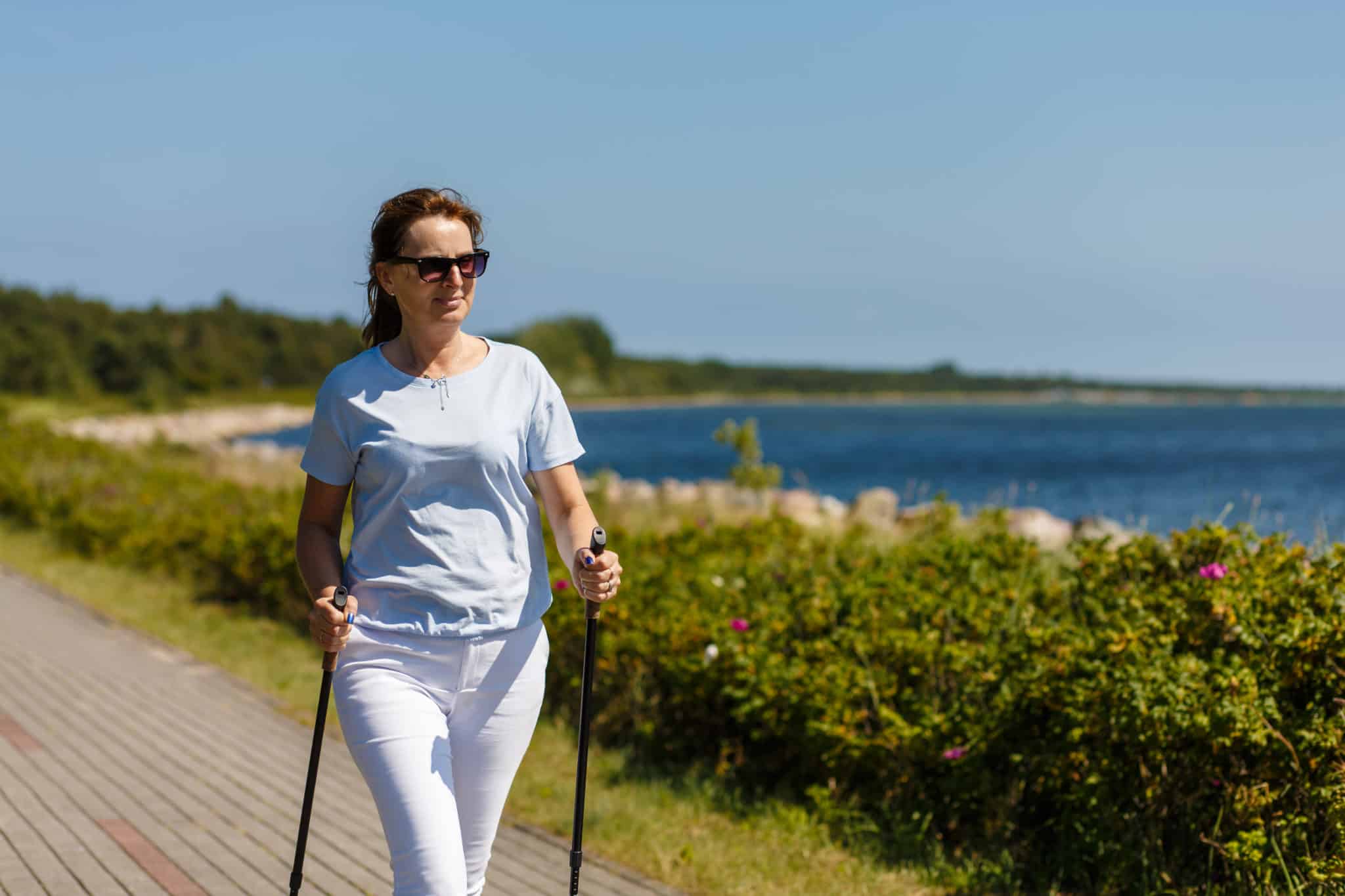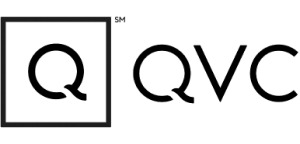This post contains affiliate links. Please see our disclosure policy.
If you are a woman of any age you’ve heard about hot flashes. If you are a “woman of a certain age” you either dread the onset of the hot flash or are already trying to navigate your way through them.
As the most common symptom of perimenopause and menopause, hot flashes have become the nemesis of women everywhere. While there are medical options available that sometimes help, there are also natural remedies for hot flashes.
So before rushing off to look for a prescription that may or may not be good for you in the long run, take a look at the natural remedies for hot flashes we have below and see if anything strikes a chord.
What is a Hot Flash?
Scientifically speaking, a hot flash happens when the blood vessels near the skin’s surface dilate to cool, making your break out in a sweat. What causes the hot flash, however, remains a mystery. Doctors and scientists agree that it is most certainly related to the changes in your reproductive hormones, given all the shifting that takes place during the process of menopause. But just exactly what happens still remains unknown. What IS KNOWN is that hot flashes are bothersome and can be very disruptive to a woman’s life. While some women only experience them a few times a week or month, others might have several each hour making it difficult to carry on any normal routine.
Symptoms of Hot Flashes
Women who’ve had them say you’ll definitely know when you have a hot flash! Still, you might be wondering what to expect. The Mayo Clinic reports that during a hot flash you might have:
- A sudden feeling of warmth spreading through you upper body and face
- A flushed appearance with red, blotchy skin
- Rapid heartbeat
- Perspiration, mostly on your upper body
- A chilled feeling as the hot flash lets up
And keep in mind that night sweats are simply hot flashes that occur in the middle of the night when you are sleeping. The symptoms remain the same, but you can certainly add “disruption of sleep” to that list!
Risk Factors For Hot Flashes
Pretty much any woman who goes through menopause is at risk for hot flashes. However, there are some factors that can increase your risk of having them and the frequency and intensity at which they occur. These risk factors include:
- Smoking– just add this to the list of reasons NOT to smoke
- Heredity-if it happened to your Mom, it will probably happen to you
- Ethnicity– African American women report higher rates than European descents. Japanese and Chinese report lower than both.
- Obesity– being obese increases the frequency of your hot flashes
In addition to these, a study done by the Journal of the North American Menopause Society added the following:
- History of using oral contraceptives
- History of depression
- Current high use of alcohol
So it’s clear that there are certainly things such as ethnicity and heredity that are out of your control. On the other hand, smoking or drinking too much alcohol ARE things you can change right now for a better outcome.
Treatment For Hot Flashes
For the vast majority of women, hot flashes might be annoying, but if they are not disrupting your life you really shouldn’t need any medical intervention. Taking medication to fix a problem might sound good, but remember there are always side effects and risks that come with taking any drugs. That being said, if you do experience a degree of hot flashes that doesn’t allow you to carry on with your normal activities, see your doctor.
Estrogen is the most commonly used prescription treatment to control hot flashes. Anti-anxiety meds and anti-seizure drugs have been used as well. Your doctor will discuss your general health history with you and help you find the right solution without putting you at high risk for any other side effects. If you do seek out estrogen therapy, keep in mind you should go with the lowest dose possible. The goal is to make you comfortable, not remove the hot flashes completely, so keep your expectations in perspective.
Natural Remedies For Hot Flashes
Here’s the good news; somewhere in between completely living with the frustration of hot flashes and taking prescription medications to help you is the chance for natural remedies that can give you tremendous help! Let’s take a look at things people have tried and reported successful outcomes. Since they are natural, and many of them come at a low to no expense, it’s always worth a try to see what works for you! Just keep in mind that every individual experiences things differently so if one thing doesn’t work, be patient and willing to try another.
Exercise
Tip number one: exercise! Is there anything exercise doesn’t help? The answer is NO! And it stays consistent here. Women who exercise regularly report much lower frequencies and intensity of hot flashes. In one study reported by Medical News Today women who exercised showed decreased symptoms of intensity from their hot flashes. Following the study, Dr. Helen Jones, Research Institute for Sport and Exercise Sciences at Liverpool John Moores University stated, “We have provided direct evidence that the physiological reactions during a hot flash can be improved with regular exercise that makes you fitter.” But you don’t need a study to tell you that. Take your own poll. The menopausal women in your life who exercise are likely to tell you it makes the feel better both physically and mentally!
Food Choices
There are foods that aggravate your symptoms and foods that will help. This is one area in which the changes are beneficial in so many other ways that even if you don’t notice a change in your symptoms, you’ll notice it in your overall health. Let’s start with the positive:
Foods That Prevent Hot Flashes
Fruits and Vegetables
All fruits and vegetables are good, but especially those with Vitamin C and E, which are antioxidants and help reduce inflammation in your body. In addition they support the adrenal gland functions that promote hormone production like estrogen, which ultimately helps subdue the hot flashes.
Whole Grains
Whole grains like brown rice and oatmeal are rich in fiber, which absorbs water keeping your stools soft and your system moving! When the system is clear, the hot flashes are fewer.
Oily Fish and Walnuts
Both are good sources of Omega-3 fatty acids. They help fight hot flashes in the way they regulate the body’s cellular functions. So have a little salmon with walnut topping today!
Flaxseed
The jury is still out on this one. A small study by the Mayo Clinic showed success in reducing hot flashes with a regular intake of flaxseed. On the other hand it also produced bloating and other gastrointestinal issues. Still other health professionals have reported no change in symptoms when flaxseed was used. In theory, flaxseed and flaxseed oils contain phytochemicals called “lignans” which are a natural phytoestrogen creating an “estrogen” –like appearance in the body.
Soy
Saved this one last because soy is a bit controversial in terms of overall women’s health. This is due to its hormone disrupting substances that soy contains. One the other hand it has been shown to help with hot flashes. One study showed soy to be significantly more effective than the placebo in reducing hot flashes. Other conclusions by the Mayo Clinic have shown no significant change.
Foods To Avoid If You Have Hot Flashes
Spicy Food
When you eat spicy food your core body temperature actually rises and some people even sweat a bit. If you are already dealing with hot flashes, one more reason to sweat is NOT what you are looking for. Eat spicy food rarely and in small doses, drinking lots of water along with it.
Caffeine
Caffeine can make you moody, tired, and increase your hot flashes. Be careful if you are consuming copious amounts of coffee or other caffeinated beverages! Start by tapering it and down to just a small amount in the morning and, if necessary, take a week or two to cut it out completely and see what happens.
Processed Sugar
This bad boy makes your own blood sugar rise and fall quickly which plays with the heat regulation in your body. On sure way to have night sweats is to eat a nice sweet, sugary dessert right before bed.
Alcohol
Ditto the processed sugar info! Since it metabolizes in a similar way, you are going to have more trouble with hot flashes, night sweats and sleep overall. Turns out that glass of chardonnay might not be your friend after all.
Herbal Supplements and Oils
Herbal supplement and essential oils are great options for those of you looking to stay away from prescription meds. One thing to consider, however, is to be clear about the safety of anything you decide to take and remember that just because something is “natural”, doesn’t mean it is without effect. Some of the most powerful drugs in the world are derived from plants. Do your research and treat your own body as carefully as you would treat your child.
Dong Quai
Dong Quai is a root grown in the cold, damp mountains of Korea, Japan and China. Also called the “female ginseng”, Dong Quai has been used for more than a thousand years as a spice, tonic and medicine. Though studies showing implications for health in humans are few, Dong Quai is said to be helpful for everything from bone health, decreasing depression, lowering blood sugar and, yes, decreasing the symptoms of menopause including hot flashes! Researchers are not sure whether Dong Quai acts like estrogen or blocks estrogen in the body. Some say it balances the estrogen either up or down as needed. Studies are conflicting including some which show it provides no relief at all. On the other hand, many women swear by it!
Black Cohosh
Native Americans get the credit for discovering, centuries ago, that this amazing plant helps relieve menstrual cramps and menopausal symptoms such as hot flashes, irritability, mood swings, and sleep disturbances. Some research shows it might also help improve sleep quality, reduce hormonal imbalances tied to diabetes or fibroids, and even help women with fertility prior to menopause.
Maca Root
Maca root is a Peruvian herb indigenous to the Andes mountains. It was revered by ancient Incan culture for its help in boosting libido and enhancing energy and mental clarity. And yes, it is another herb that has been used for thousands of years to reduce hot flashes.
Essential Oils
Essential oils have become all the rage lately, but that doesn’t mean they are new! These beauties have been around a long time and several of them have been long known for effectiveness in reducing hot flashes and other menopausal symptoms. Here are a few.
Clary Sage
A few drops of clary sage on the back of your neck or all over your feet and you might just cool down those hot flashes! Some studies have shown that sage reduces both frequency and intensity of night sweats and hot flashes. It is believed clary sage has estrogen-like compounds found to help balance the hormones in your body. Need relief more quickly? Place a few drops on a tissue and gently inhale. This is also believed to give you an antidepressant effect.
Peppermint Oil
Peppermint can also be used to reduce the discomfort of hot flashes. Apply the same way as clary sage or add a few drops to water in a misting bottle and use it to mist your face. Bonus: the smell will be amazing!
Basil Oil
Studies suggest that basil contains qualities similar to estrogen, which is the go-to solution prescribed by doctors for hot flashes. In most cases the basil oil is diluted and applied to the feet or back of the neck just like clary sage.
Cypress
Cypress is believed to be a detoxifying oil especially helpful for reducing fluid retention. It also helps balance hormones and gives cooling properties for treating hot flashes and night sweats.
Talk to someone knowledgeable in essential oils or do a little looking online and you will find there are several blends designed specifically to help with hot flashes.
Remember, before trying anything to deal with your hot flashes, it’s always good to talk it through with a medical professional. Most doctor and nurse practitioners who specialize in menopause are open to many different natural remedies for dealing with hot flashes. Stay cool out there






How well does Primrose capsules work. Thanks Carlene
Well – evening primrose oil has been talked about as helpful for reducing the frequencey of night sweats and hot flashes but I don’t have any experience with it – I never tried it myself and I am now past menopause! But hang in there because it will pass. I found exercise and healthy eating helped me the most.